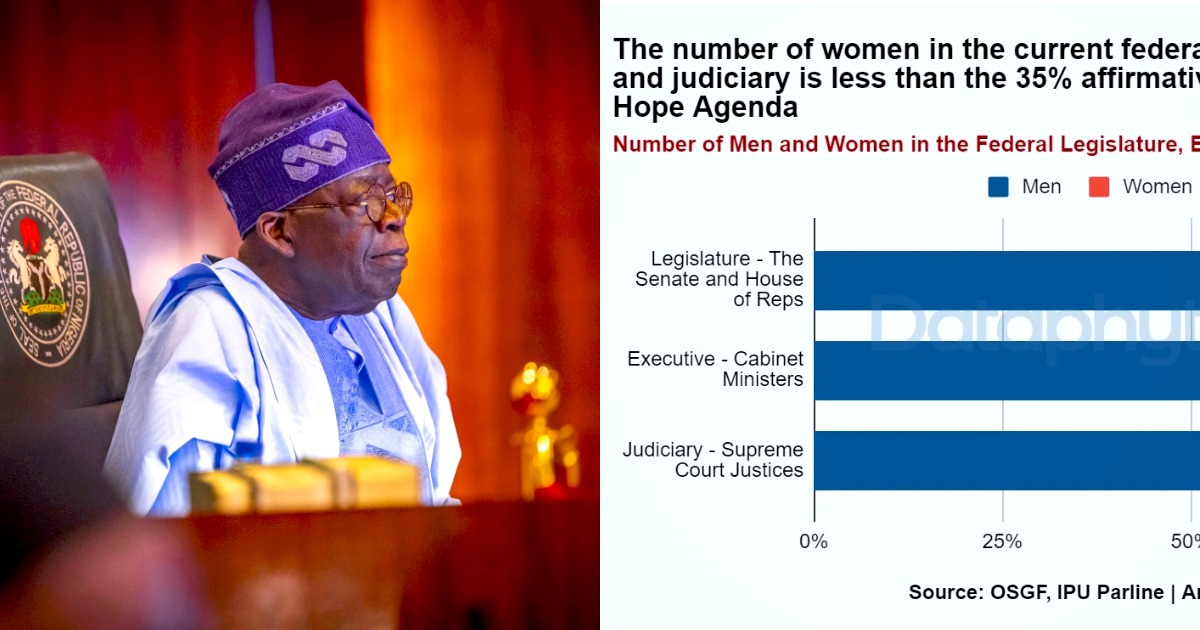News
Tinubu achieved only 5% female inclusion in first year – Dataphyte

In his first year in office, President Bola Ahmed Tinubu has achieved only a 5% female inclusion in his three-tier government, falling significantly short of the 35% affirmative action promised in his Renewed Hope Manifesto.
Despite pledges to prioritize gender equality, the representation of women in Nigeria’s Legislative, Executive, and Judiciary branches remains alarmingly low, according to findings by Dataphyte.
”Currently, women constitute only 15% of President Tinubu’s cabinet and just 4% of members of the Senate and House of Representatives.”
”This imbalance in women’s representation in politics may increase gender-biased policymaking and decisions in the executive and the parliament, leading to a lack of attention to women’s issues such as gender-based violence, sexual harassment, girl child education, child marriage, and female gender mutilation,” the report revealed.
In his Renewed Hope Agenda, Tinubu committed to increasing women’s participation in government to at least 35% at all levels.
However, Dataphyte reports that this administration’s current figures starkly contrast the commitment, and raise concerns about the government’s implementation and effectiveness of his gender policies.
The low female representation in Nigerian politics is not a new phenomenon.
Over the past 25 years, women have consistently been underrepresented in both the Senate and the House of Representatives.
Under the current administration, only 18 out of 469 parliament members are women, marking the second-lowest number of female representatives since 1999.
The lowest was during former President Olusegun Obasanjo’s tenure (1999-2003), with only 15 women in parliament. The highest was between 2007 and 2011.
According to the Women, Peace and Security Index (WPS) 2023, Nigeria ranks lowest among 48 Sub-Saharan African countries, with women making up only 4% of the parliament.
In stark contrast, Rwanda leads with 54.7% female representation in its parliament, demonstrating a successful model of gender balance in public governance.
The report indicted Tinubu’s administration, stating that: ”Besides Tinubu’s failure to meet the promised 35% gender representation in his government, there are other instances where his few women representatives fell short of their strategic gender inclusion roles.
”An instance where a sitting Minister of Women Affairs under the Tinubu administration was seen threatening female victims of sexual harassment by a Professor at the University of Calabar, raises questions on the veracity of the idea that more women in government will automatically lead to gender-favourable policies.”
Dataphyte is a media research and data analytics organisation deploying data tools and technology for the socio-economic development of Nigeria.

